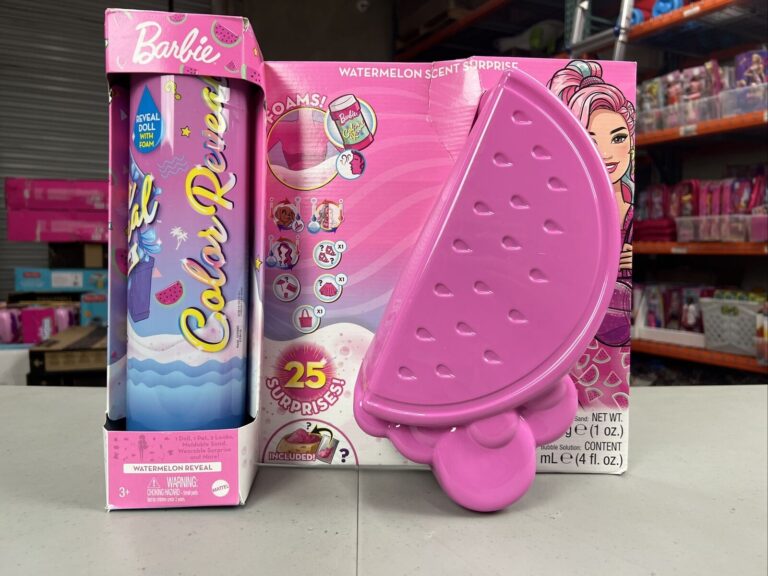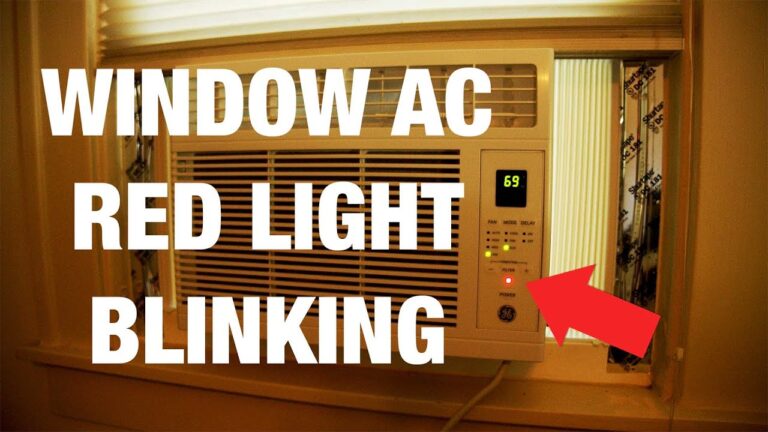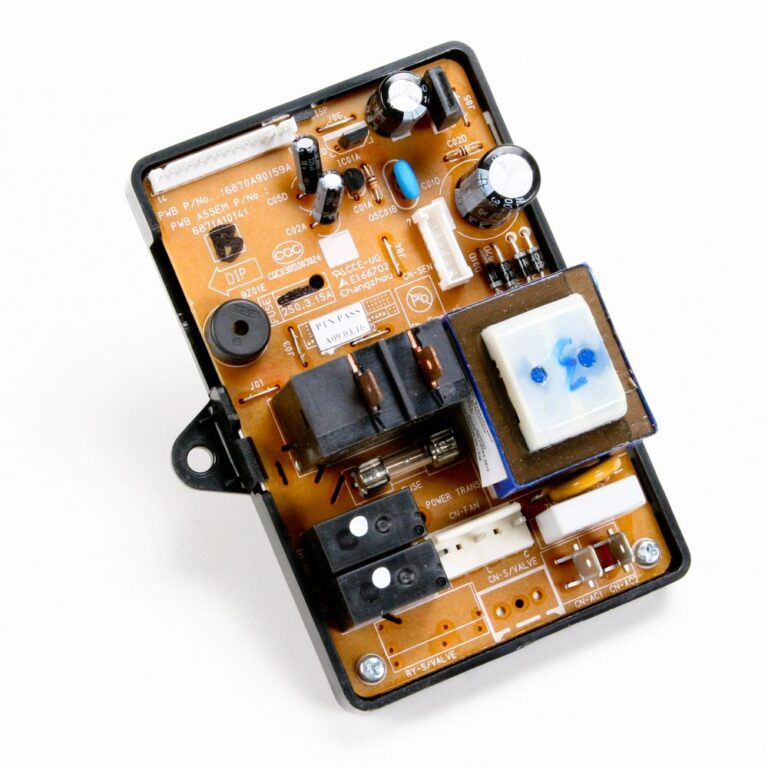Why Won’t My AC Cool Below 74: Troubleshooting Tips and Solutions
If your AC won’t cool below 74, check if it’s set to the desired temperature and switched to the “cool” setting. Additionally, ensure that the vents are open and free from obstructions.
If the issue persists, inspect and clean the A/C filter for dust or discoloration. Another possible reason could be dirt buildup on the thermostat’s interior parts, causing it to give incorrect readings. To resolve this, clean the thermostat. Be sure to consider the room size, correct thermostat calibration, filter cleanliness, and potential leaks as other factors impacting the cooling efficiency.
Common Causes Of Ac Cooling Issues
If your AC won’t cool below 74 degrees, there could be a few common causes. Check if the thermostat is calibrated correctly, the AC filter is dirty, or if there are any leaks in the system.
:
A properly functioning air conditioner should be able to cool a room to a comfortable temperature, typically below 74 degrees Fahrenheit. However, there are several common issues that can prevent your AC from cooling effectively. Here are some potential causes to consider:
- Dirty air filter:
- A dirty air filter can restrict airflow, reducing the cooling capacity of your AC unit.
- When the air filter is clogged with dirt and debris, it prevents cold air from circulating properly throughout the room.
- Solution: Regularly clean or replace your air filter to ensure efficient cooling.
- Improper thermostat settings:
- If your AC is not cooling below 74 degrees, it could be due to incorrect thermostat settings.
- Double-check that your thermostat is set to the desired temperature and the cooling mode is enabled.
- Sometimes, the thermostat may be dirty, leading to inaccurate temperature readings.
- Solution: Clean the thermostat and ensure that it is calibrated correctly.
- Oversized AC unit:
- An oversized AC unit may cool the room too quickly, causing the thermostat to shut off prematurely, resulting in an inability to cool below 74 degrees.
- This can occur when the AC unit is not correctly sized for the room it is cooling.
- Solution: Consult with a professional to determine the appropriate size of AC unit for your specific space.
- Leaks in the system:
- Refrigerant leaks can cause a decrease in cooling efficiency and prevent your AC from cooling below 74 degrees.
- Leaks can occur in the refrigerant lines, coils, or connections, leading to a reduced cooling capacity.
- Solution: Contact a licensed HVAC technician to identify and repair any refrigerant leaks.
- Air to air exchanger turned on:
- If your AC is struggling to cool below 74 degrees, check if the air to air exchanger is turned on.
- The air to air exchanger exchanges indoor air with outdoor air, which may introduce warmer air into your space.
- Solution: Turn off the air to air exchanger, especially during hot weather, to improve cooling efficiency.
Remember, these are just some of the common causes of AC cooling issues. If your AC is not cooling below 74 degrees, it is advisable to consult with a professional HVAC technician for a thorough inspection and proper resolution of the problem.
1. Dirty Air Filter
If your AC won’t cool below 74, one possible reason could be a dirty air filter. Make sure to check and clean your filter regularly to ensure proper airflow and cooling efficiency.
Impact Of A Dirty Air Filter On Ac Cooling:
- A dirty air filter restricts the flow of air, causing reduced cooling efficiency.
- When air cannot pass through the filter properly, it hinders the AC system’s ability to cool the air.
- As a result, the AC might struggle to reach and maintain the desired temperature, especially below 74 degrees.
- The dirty air filter can also lead to increased energy consumption and higher utility bills.
Steps To Clean Or Replace The Air Filter:
- Locate the air filter: The air filter is typically housed inside the air conditioner unit or located behind the return air grille.
- Turn off the AC system: Before removing the air filter, ensure that the AC unit is turned off to prevent any potential damage.
- Remove the air filter: Carefully remove the dirty air filter from its housing. Pay attention to how it was positioned so you can easily replace it later.
- Inspect the filter: Check the condition of the air filter. If it appears dusty or clogged, it’s time to clean or replace it.
- Cleaning the filter: If the filter is not too dirty, you can clean it by gently vacuuming or rinsing it with water. Allow it to dry completely before reinstalling.
- Replacing the filter: If the filter is heavily soiled or damaged, it’s best to replace it with a new one. Make sure to use the correct size and type of filter recommended by the manufacturer.
- Reinstall the filter: Carefully place the cleaned or new filter back into its housing, following the correct orientation.
- Turn on the AC system: Once the filter is securely in place, turn on the AC unit and let it run to ensure proper airflow and cooling.
Frequency Of Air Filter Maintenance:
- It is recommended to check and clean or replace the air filter every 1 to 3 months, depending on various factors such as usage, air quality, and the type of filter used.
- Homes with pets, smokers, or those located in dusty areas may require more frequent filter maintenance.
- Regularly maintaining the air filter ensures optimal performance of your AC system and helps prevent issues with cooling efficiency.
Remember, a clean air filter is essential for maximum cooling and energy efficiency of your air conditioning system. By regularly cleaning or replacing the air filter, you can ensure that your AC cools efficiently and provides a comfortable indoor environment.
2. Improper Thermostat Settings
When your AC won’t cool below 74, one possible reason is improper thermostat settings. Make sure your thermostat is set to the desired temperature and switched to the “cool” setting. Also, check for any dirt buildup on the thermostat’s interior parts which could affect its readings.
Understanding The Thermostat’S Role In Ac Cooling:
- The thermostat plays a crucial role in controlling the temperature of your air conditioning system.
- It senses the current temperature of your space and activates the AC to cool the area until it reaches the desired temperature.
- The thermostat also helps maintain a consistent and comfortable temperature by turning the AC on and off as needed.
Checking And Adjusting The Thermostat Settings:
- Ensure that the thermostat is set to the desired temperature. If it is set below 74 degrees, but the AC is not cooling properly, there might be other factors at play.
- Check if the thermostat is set to the “cool” mode. If it is set to “heat” or “fan,” the AC won’t cool the room.
- Make sure the thermostat is not on a timer or schedule that interferes with reaching your desired temperature.
Common Mistakes To Avoid With Thermostat Settings:
- Setting the thermostat too low: It is tempting to set the thermostat at a very low temperature, thinking it will cool the room faster. However, this can strain your AC and result in inefficiency.
- Incorrectly calibrating the thermostat: If the thermostat is not properly calibrated, it may not accurately read the temperature, leading to improper cooling.
- Ignoring maintenance: Over time, dirt and debris can accumulate on the thermostat’s interior parts, affecting its ability to function correctly. Regular cleaning and maintenance can help prevent this issue.
Remember, the thermostat is just one component of your AC system, and there might be other reasons why your AC is not cooling below 74 degrees. If adjusting the thermostat settings doesn’t solve the issue, it is advisable to seek professional help to diagnose and fix the problem.
3. Oversized Ac Unit
If your AC won’t cool below 74, it could be due to an oversized AC unit. When the AC unit is too big for the room, it may struggle to maintain lower temperatures effectively. Consider getting a properly sized AC unit to ensure optimal cooling.
Consequences Of Having An Oversized Ac Unit
- Uneven cooling: An oversized AC unit may cool certain areas of your home quickly, while leaving other areas uncomfortably warm. This can create a stark contrast in temperature throughout your living space.
- Energy inefficiency: An oversized AC unit causes frequent on-and-off cycles, which not only wastes energy but also increases your utility bills. The constant cycling puts extra strain on the unit, leading to premature wear and tear.
- Reduced lifespan: The excessive workload on an oversized AC unit can shorten its lifespan significantly. The unit may fail prematurely, requiring costly repairs or even a complete replacement.
Signs That Your Ac Unit Is Oversized
- Rapid cooling: If your AC cools your home too quickly and frequently reaches the set temperature, it may indicate that the unit is oversized.
- Short cycling: Noticeable short on and off cycles of your AC indicate that it is more powerful than necessary. Oversized units tend to reach the desired temperature quickly and turn off abruptly.
- Humidity problems: An oversized AC unit cools the air too quickly, preventing it from dehumidifying properly. This can lead to an uncomfortable, clammy feeling in your home and potential mold growth.
Solutions For Dealing With An Oversized Ac Unit
- Consult an HVAC professional: A qualified technician can assess your cooling needs and recommend a correctly sized unit for your home. They will perform a load calculation to determine the required cooling capacity.
- Replace the AC unit: If your current AC unit is significantly oversized, it may be necessary to replace it with a properly sized model. This will ensure optimal cooling performance and energy efficiency.
- Zone your cooling system: Implementing a zoned cooling system allows you to control the temperature in different areas of your home independently. This eliminates the need for an oversized unit to cool the entire space uniformly.
4. Leaks In The System
If your AC won’t cool below 74, it could be due to leaks in the system. Inspect your AC and look for any signs of refrigerant leakage, as this can prevent proper cooling. Consider contacting a professional to fix the issue and restore your AC’s cooling efficiency.
How Leaks Affect Ac Cooling:
- Leaks in the AC system can cause a significant decrease in cooling efficiency. When refrigerant leaks, it reduces the amount of coolant available to cool the air.
- Leaks can lead to a drop in pressure, making it harder for the AC unit to cool the air to the desired temperature.
- Leaks can also result in an imbalance of the refrigerant levels, causing the AC system to work harder and use more energy to cool the space.
Identifying And Fixing Common Ac System Leaks:
- Regular inspection of the AC system can help identify leaks early on. Signs of a leak may include hissing sounds, oily residue on AC components, or reduced cooling efficiency.
- A professional AC technician can use specialized equipment to locate and fix AC system leaks. They will typically use a refrigerant leak detector or inject UV dye into the system to identify the source of the leak.
- Once the leak is identified, the technician can fix it by replacing faulty components, sealing the leaky areas, or recharging the refrigerant as needed.
Importance Of Regular Maintenance To Prevent Leaks:
- Regular maintenance of the AC system is crucial in preventing leaks. This includes cleaning or replacing air filters, checking for and sealing any potential leaks, and ensuring proper refrigerant levels.
- Regular maintenance can help identify and fix any small issues before they turn into major leaks. It can also ensure that the AC system operates at its optimal efficiency, saving energy and prolonging the lifespan of the unit.
- Hiring a professional AC technician for regular maintenance can give you peace of mind knowing that your AC system is in good working condition and that any potential leaks are addressed promptly.
Remember, addressing leaks in your AC system is crucial for optimal cooling performance. Regular maintenance and prompt repairs can help keep your AC cooling efficiently below 74 degrees. Don’t hesitate to reach out to a professional technician for assistance.
5. Air To Air Exchanger Is Turned On
One reason your AC may not cool below 74 degrees is if the air to air exchanger is turned on. This can potentially hinder the cooling process and affect the temperature control of your AC system.
What Is An Air To Air Exchanger And Its Impact On Ac Cooling:
- Air to air exchanger is a device that brings in fresh outdoor air into the home and removes stale indoor air.
- It helps maintain proper ventilation and improve indoor air quality.
- However, it can also impact the cooling efficiency of your AC system.
- An air to air exchanger can introduce warm, humid air from outside, making it harder for the AC to cool the indoor space.
How To Identify If The Air To Air Exchanger Is Affecting Ac Performance:
- Check the temperature and humidity levels inside your home. If you notice that the indoor temperature is not reaching the set temperature or the humidity levels are high, it could be a sign that the air to air exchanger is affecting AC performance.
- Listen for excessive noise coming from the air to air exchanger. If you hear loud noises or vibrations, it could indicate that the device is not functioning properly and may be impacting AC cooling.
Steps To Resolve Issues Related To The Air To Air Exchanger:
- Make sure the air to air exchanger is properly sized for your home. If it is too big, it can introduce too much outdoor air and make it difficult for the AC to cool the indoor space. If it is too small, it may not provide enough ventilation.
- Clean or replace the air filters in the air to air exchanger. Dirty filters can restrict airflow and reduce cooling efficiency.
- Check the insulation around the air to air exchanger. Poor insulation can allow warm air from outside to enter the home, affecting AC cooling.
- Consider installing a dehumidifier to control the humidity levels indoors. This can help alleviate the additional moisture introduced by the air to air exchanger.
- If the issues persist, consult a professional HVAC technician to inspect and optimize the air to air exchanger and AC system for better cooling performance.
Remember, the air to air exchanger plays a crucial role in maintaining indoor air quality, but it can also affect AC cooling. By identifying and resolving any issues related to the air to air exchanger, you can ensure optimal cooling efficiency for your home.
Bonus Tips To Improve Ac Cooling Efficiency
Looking for bonus tips to improve AC cooling efficiency? If your AC won’t cool below 74 degrees, try cleaning the thermostat, checking for dirty air filters, and ensuring there are no leaks or obstructions in your unit.
Importance Of Regular Maintenance And Cleaning:
- Regular maintenance and cleaning of your AC unit is crucial for optimal cooling performance.
- Dirty air filters can restrict airflow, causing your AC to work harder and potentially not reach the desired temperature.
- It is important to clean or replace your air filters regularly to prevent dust buildup and ensure proper airflow.
- Dust and debris can accumulate on the condenser coils, hindering heat transfer and reducing cooling efficiency.
- Schedule annual professional maintenance to have your AC unit inspected, cleaned, and tuned-up to maximize its performance and lifespan.
Optimizing Insulation In Your Home:
- Proper insulation plays a vital role in maintaining a cool indoor temperature.
- Ensure that your home is properly insulated, especially in areas prone to heat gain, such as the attic and windows.
- Seal any gaps or cracks around windows and doors to prevent hot air from entering and cool air from escaping.
- Consider using reflective insulation or radiant barriers to reduce heat transfer through the roof.
- Insulating your ductwork can prevent cool air loss between the AC unit and the vents, improving overall cooling efficiency.
Utilizing Ceiling Fans To Improve Air Circulation:
- Ceiling fans can help improve air circulation and enhance the cooling effect of your AC.
- Set your ceiling fans to rotate counterclockwise during the summer to create a cooling breeze.
- The airflow from the fan can make you feel cooler, allowing you to set your AC temperature slightly higher.
- Ceiling fans can help distribute cool air throughout the room more effectively, reducing the workload of your AC.
- Remember to turn off ceiling fans when you leave a room to save energy and ensure optimal AC performance.
Remember, regular maintenance and cleaning, optimizing insulation in your home, and utilizing ceiling fans are all effective ways to improve AC cooling efficiency and ensure a comfortable indoor environment. By following these bonus tips, you can enhance the performance of your AC unit and enjoy a cooler and more energy-efficient home.

Credit: www.amazon.com
Frequently Asked Questions On Why Wont My Ac Cool Below 74
Why Won’T My Air Conditioner Go Below 75?
Make sure the air conditioner is set to the desired temperature and on the “cool” setting. Check that the vents are open and clear. Remove and inspect the AC filter for dust or discoloration. Clean the thermostat if there is dirt buildup.
Other reasons could include an incorrectly calibrated thermostat, a dirty AC filter, or leaks in the system.
Why Is My Ac Not Cooling Down To Set Temperature?
First, check that your AC is set to your desired temperature and switched to the “cool” setting. Ensure that your vents are open and clear. If the issue persists, remove and inspect your AC filter for dust or discoloration.
Why Is My Ac Set At 75 But Reads 77?
Your AC may read a higher temperature than what you’ve set due to dirty thermostat parts or a dirty AC filter.
Is 74 Too Low For Ac?
No, 74 is not too low for an AC.
Conclusion
If your AC won’t cool below 74 degrees, there are a few possible reasons for this issue. First, check that your thermostat is set to the desired temperature and switched on the “cool” setting. Ensure that your vents are open and free from obstructions.
If the problem persists, remove and inspect your AC filter for any dust or discoloration. Additionally, dirt buildup on the thermostat’s interior parts could cause inaccuracies in temperature readings, so cleaning it might help. It is also possible that your AC is too big for the room or that the thermostat is incorrectly calibrated.
Finally, there could be leaks in the system or a refrigerant issue. If these troubleshooting tips don’t solve the problem, it may be best to consult a professional HVAC technician for further assistance. Proper maintenance and regular check-ups can help ensure your AC system works efficiently to keep you cool.





